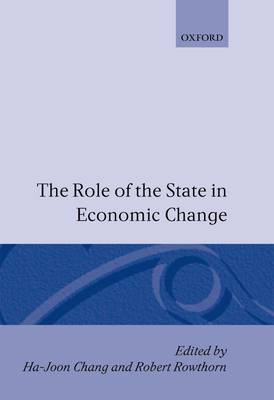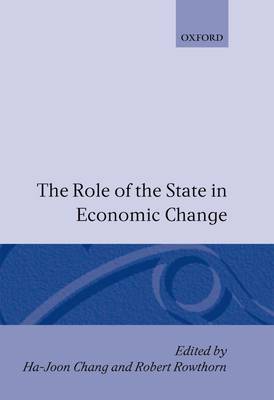
- Retrait gratuit dans votre magasin Club
- 7.000.000 titres dans notre catalogue
- Payer en toute sécurité
- Toujours un magasin près de chez vous
- Retrait gratuit dans votre magasin Club
- 7.000.0000 titres dans notre catalogue
- Payer en toute sécurité
- Toujours un magasin près de chez vous
The Role of the State in Economic Change
330,45 €
+ 660 points
Description
The role of the state has occupied centre stage in the development of economics as an independent discipline and is one of the most contentious issues addressed by contemporary economists and political economists. The immediate postwar years saw a swing in economic theory towards interventionism, motivated by the urgent need for reconstruction in advanced capitalist countries, the establishment of socialism in parts of Asia and Eastern Europe, and the liberation of many developing nations from colonialism. After a quarter of a century of interventionist policies, a vigorous backlash against state intervention began with the discrediting of welfare statism in advanced capitalist countries, grew through the spread of liberalization programmes among developing nations during the 1980s, and culminated in the dismantling of socialist central planning since 1989. In this volume, ten distinguished contributors examine patterns of interventionism and anti-interventionism in a wide variety of historical, political, and institutional contexts, and within different theoretical traditions. Their primary focus is on the internal factors which shape the role of the state and determine its effectiveness in promoting economic change. They explain the growing disenchantment with the Neo-Liberal, anti-interventionist programme - even in Eastern Europe and the former USSR, where the initial optimism in the efficacy of the free market is fading fast. The overall conclusion of the empirical and theoretical analysis is that the simplistic notion of politics fundamental to Neo-Liberal arguments makes them at best misleading and at worst deceitful. Although one can talk of certain general principles, there isno hard and fast rule to determine the optimal degree and the desirable areas of state intervention, which can only be determined in the concrete historical, institutional, and geographical context. The challenge is to form a new synthesis in which the valid insights of
Spécifications
Parties prenantes
- Editeur:
Contenu
- Nombre de pages :
- 316
- Langue:
- Anglais
- Collection :
Caractéristiques
- EAN:
- 9780198289845
- Date de parution :
- 01-02-96
- Format:
- Livre relié
- Format numérique:
- Genaaid
- Dimensions :
- 152 mm x 229 mm
- Poids :
- 639 g

Les avis
Nous publions uniquement les avis qui respectent les conditions requises. Consultez nos conditions pour les avis.





